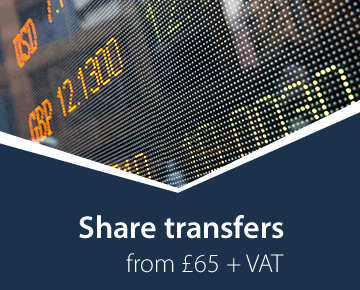Company Law Solutions offers expert guidance to companies seeking to make an off-market purchase of their own shares. As a company, you may be considering a buyback or share repurchase to reduce your share capital, or because a shareholder wishes to sell their holding.
Whatever the reason, our team of experts can help guide you through the process of implementing a share buyback, ensuring compliance with the statutory provisions and drafting all of the necessary documentation bespoke for your company. Contact us today to learn more about how we can help you with your buyback of shares.
What Is A Buyback of Shares?
A buyback of shares, also known as a share repurchase or (where the the buyback is done otherwise than on a recognised investment exchange) an off-market purchase of shares, is when a company buys back (and usually cancels) its own shares from existing shareholders.
Why Would a Company Initiate A Buyback of Shares?
Companies may choose to buy back their own shares for various reasons. There may be a shareholder who wishes to sell their shares, but who cannot find anyone who wishes to buy them (a common occurrence when directors or employees who are also shareholders retire). If a shareholder dies, it may well be the case that the beneficiaries of their will would prefer - or are compelled by the provisions of the company's articles or a shareholders' agreement - to realise the value of the deceased shareholder's stake rather than having the shares bequeathed to them (and indeed this scenario may also be preferable from the company's perspective). In all such circumstances, a buyback often provides an attractive alternative to the existing shareholders having to find the money to buy the departing shareholder's stake themselves. Buybacks are also useful where a company wishes to reduce its share capital but does not or cannot do so by way of a reduction of capital (for example where it is undesirable or impossible for the directors to declare a statement of solvency).
How Are Share Buybacks Funded?
Buybacks are usually funded from distributable profits (i.e. revenue reserves). However, they can also be paid for by raising funds through a fresh issue of shares (an uncommon scenario but one which has specific benefits in certain situations). Finally, a private company can buy its shares back out of capital by making what is known as a 'permissible capital payment'. This is relatively rare and there are detailed rules and procedures to be followed in doing so.
Financial Consequences of Share Buybacks
The most obvious financial consequence of a share buyback, assuming it is made out of profits, is the associated reduction in the company's revenue reserve and the weakening of its cash position (as it will of course have to actually pay the money to the selling shareholder in return for their shares). It is also highly likely that there will be tax implications; for example, the company is likely to have to pay stamp duty on the purchase, while the seller may well incur a liability to income or capital gains tax.
Our service
The Company Law Solutions service provides everything required to be legally compliant, including:
- guidance as to the applicable procedures
- contract for the purchase of the shares by the company
- minutes of directors' meetings
- notices of shareholders' resolutions
- shareholders' consents to resolutions
- completed official forms for Companies House
- our straightforward, step by step guide to completing the procedures
| Service | Price | |
|---|---|---|
| Buy back of shares | From £350.00 + VAT | Quote |
Contact us
Email us at info@companylawsolutions.co.uk
